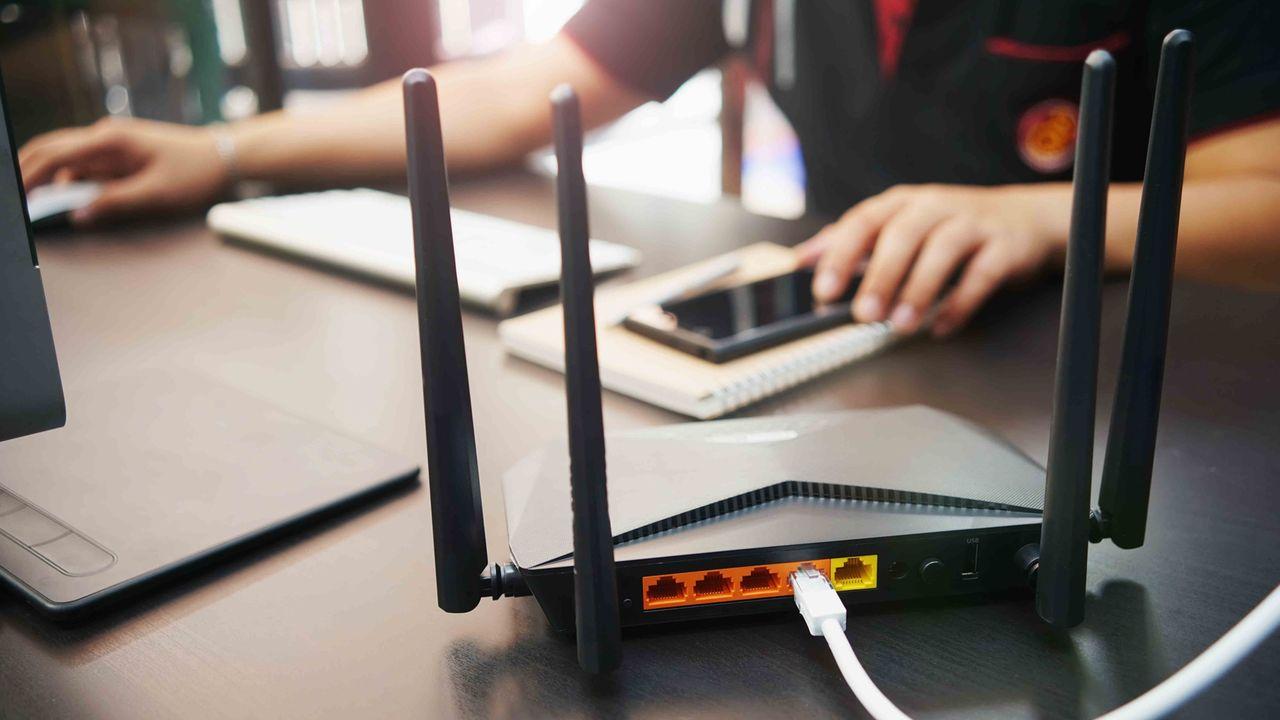Are you concerned about your network performance or security due to the number of connected devices causing a detrimental network load? Are you wondering how many Wi-Fi devices is too many on your network? Read on to learn the optimal number of devices to allow into your network and how to ensure the best connectivity available for your network users.
How Many Devices Can Connect to My WiFi Network?
Typically, most wireless devices can connect up to 255 devices simultaneously from a single access point on your Wi-Fi network. These represent several different computers, phones, tablets, cameras and other equipment and may far exceed the need for a typical house. However, that standard capability doesn’t reflect the ability of your network to provide service to that many devices. Depending on how individual users access your available bandwidth, only a few devices can connect before interruptions in service occur.
Each computer or device added to the network will likely reduce the bandwidth available on another device using the same internet connection. You can see this when your network devices begin lagging, such as during streaming video or music.
Home Networks
A smart home network using the hottest technologies can include many more connected devices than initially meets the eye. Some common examples of devices connected to smart home networks include:
- Security cameras
- Smart TVs
- Any portable second access point or multiple access points to increase range, aka hotspots
- Smart speakers
- Smart appliances like remotely controlled refrigerators and heating and cooling systems
Countless devices can be used to increase the overall quality of life within a home. Depending on how many devices and what amount of bandwidth they use, your wireless connections can struggle significantly under the heavy strain.
Find the Best Smart Home Router for Your Network
When setting up your home wireless network, the router you choose will ultimately determine the speed and range of your shared internet connection. The choice of the best routers can be overwhelming. This list shows things that must be considered when choosing a router:
- Determine if you need a single-band or dual-band router.
- Does your broadband service provider offer a standard wireless router for you to use? If so, it’s likely among the best choices, as it was chosen specifically for that network. It may, however, charge a rental fee or require you to purchase the equipment if you use its Wi-Fi router.
- Determine your network needs. Newer devices require upgraded Wi-Fi routers with 802.11ac support instead of the older standard, a wireless N router.
When you’re trying to figure out the best technology to use in your home network, reach out to the pros at EIRE Systems for help. We can offer premium Wi-Fi design services to ensure every connected device in your home or business operates at top speed, using the latest and best network technology to keep you online.
Business Networks
Your business network must be able to withstand the pressures of a high bandwidth load and the extra security risks associated with a network connection to several devices. Invest in the best internet connection you can find for your organization, with symmetrical speeds to help quickly upload critical documents to your cloud and the bandwidth capability to ensure all these connected devices can utilize your wireless network.
It’s also important to consider your ISP’s impact on your business aside from bandwidth capability. Look for an ISP based on consumer ratings to ensure its customer service and corporate management policies are in line with your company’s needs. If your wireless network needs tech support on a weekend, for example, will it be able to accommodate you? To ensure the absolute highest standard of performance within your organization, seek out a quality ISP and top-of-the-line Wi-Fi router systems with dynamic security features.
Too Many Devices on the Same Internet Connection Causes Disruptions
When you live in a home or work in an area where multiple people frequently use too many devices on the same network, you may experience low bandwidth. This would be experienced across multiple devices, making the devices slow down to the point of affecting even simple web browsing. When your network has more access points than your ISP can keep up with, find a Wi-Fi network solution to improve your connectivity.
Depending on how you use a device, the bandwidth you need for high-quality streaming and quick image uploads will directly impact the other devices connected to your router. Wi-Fi connections are also impacted by the number of devices attempting to connect at any given time, whether a smartphone or a remote garage door opener. If one or more routers are present, you can split the load between different devicesby setting them up in opposite corners of your home to lessen the burden on your available bandwidth.
Is Your Wi-Fi Slowing Down?
If so, you might benefit from a network diagnostic assessment to determine the cause of your network interference. Using multiple smartphones, video game systems, laptops and other devices can cause you to quickly reach your Wi-Fi connection limits. You’re also at an increased risk of a security breach when multiple devices connect to a router, transferring harmful apps and malware across your network.
Don’t let a spotty internet connection ruin your plans. Ensure all your devices can utilize your Wi-Fi connection without interruption. Reach out to the IT professionals at EIRE Systems to learn about our innovative Wi-Fi design services that can help you manage the safety and capacity of your Wi-Fi networks.

